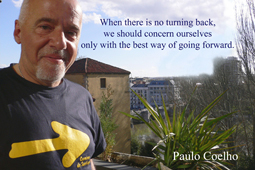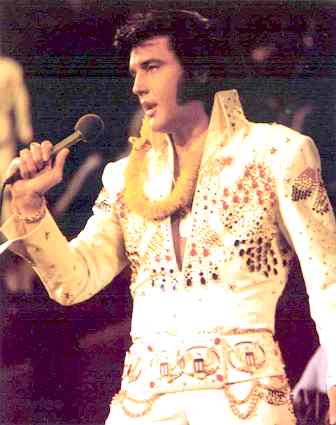 *
"We do not suffer by accident. It
does not often happen that the
interference of friends will
persuade a young man of independent
fortune to think no more of a girl
whom he was violently in love with
only a few days before."
*
"We do not suffer by accident. It
does not often happen that the
interference of friends will
persuade a young man of independent
fortune to think no more of a girl
whom he was violently in love with
only a few days before."
"But that expression of 'violently
in love' is so hackneyed, so
doubtful, so indefinite, that it
gives me very little idea. It is as
often applied to feelings which
arise from a half-hour's
acquaintance, as to a real, strong
attachment. Pray, how violent was
Mr. Bingley's love?"
"I never saw a more promising
inclination; he was growing quite
inattentive to other people, and
wholly engrossed by her. Every time
they met, it was more decided and
remarkable. At his own ball he
offended two or three young ladies,
by not asking them to dance; and I
spoke to him twice myself, without
receiving an answer. Could there be
finer symptoms? Is not general
incivility the very essence of
love?" (Ch. 25)
* "Adieu to disappointment and
spleen. What are men to rocks and
mountains?" (Ch. 27)
* "And is this all?" cried
Elizabeth. "I expected at least that
the pigs were got into the garden,
and here is nothing but Lady
Catherine and her daughter..." (Ch.
28)
* "I like her appearance," said
Elizabeth, struck with other ideas.
"She looks sickly and cross. Yes,
she will do for him very well. She
will make him a very proper wife."
(Ch. 28)
* "There is a stubbornness about me
that never can bear to be frightened
at the will of others. My courage
always rises at every attempt to
intimidate me."
"I shall not say you are mistaken,"
he replied, "because you could not
really believe me to entertain any
design of alarming you; and I have
had the pleasure of your
acquaintance long enough to know
that you find great enjoyment in
occasionally professing opinions
which in fact are not your own."
Elizabeth laughed heartily at this
picture of herself, and said to
Colonel Fitzwilliam, "Your cousin
will give you a very pretty notion
of me, and teach you not to believe
a word I say. I am particularly
unlucky in meeting with a person so
able to expose my real character, in
a part of the world where I had
hoped to pass myself off with some
degree of credit." (Ch. 31)
* "I certainly have not the talent
which some people possess," said
Darcy, "of conversing easily with
those I have never seen before. I
cannot catch their tone of
conversation, or appear interested
in their concerns, as I often see
done."
"My fingers," said Elizabeth, "do
not move over this instrument in the
masterly manner which I see so many
women's do. They have not the same
force or rapidity, and do not
produce the same expression. But
then I have always supposed it to be
my own fault- because I would not
take the trouble of practising..."(Ch.
31)
* More than once did Elizabeth, in
her ramble within the park,
unexpectedly meet Mr. Darcy. She
felt all the perverseness of the
mischance that should bring him
where no one else was brought, and,
to prevent its ever happening again,
took care to inform him at first
that it was a favourite haunt of
hers. How it could occur a second
time, therefore, was very odd! Yet
it did, and even a third. It seemed
like wilful ill-nature, or a
voluntary penance, for on these
occasions it was not merely a few
formal inquiries and an awkward
pause and then away, but he actually
thought it necessary to turn back
and walk with her.
* "It is a circumstance which Darcy
could not wish to be generally
known, because if it were to get
round to the lady's family, it would
be an unpleasant thing."
"You may depend upon my not
mentioning it."
"And remember that I have not much
reason for supposing it to be
Bingley. What he told me was merely
this: that he congratulated himself
on having lately saved a friend from
the inconveniences of a most
imprudent marriage, but without
mentioning names or any other
particulars, and I only suspected it
to be Bingley from believing him the
kind of young man to get into a
scrape of that sort, and from
knowing them to have been together
the whole of last summer."
"Did Mr. Darcy give you reasons for
this interference?"
"I understood that there were some
very strong objections against the
lady."
* "I do not see what right Mr. Darcy
had to decide on the propriety of
his friend's inclination, or why,
upon his own judgement alone, he was
to determine and direct in what
manner his friend was to be happy.
But," she continued, recollecting
herself, "as we know none of the
particulars, it is not fair to
condemn him. It is not to be
supposed that there was much
affection in the case."
* She was suddenly roused by the
sound of the door-bell, and her
spirits were a little fluttered by
the idea of its being Colonel
Fitzwilliam himself, who had once
before called late in the evening,
and might now come to inquire
particularly after her. But this
idea was soon banished, and her
spirits were very differently
affected, when, to her utter
amazement, she saw Mr. Darcy walk
into the room. In an hurried manner
he immediately began an inquiry
after her health, imputing his visit
to a wish of hearing that she were
better. She answered him with cold
civility. He sat down for a few
moments, and then getting up, walked
about the room. Elizabeth was
surprised, but said not a word.
After a silence of several minutes,
he came towards her in an agitated
manner, and thus began:
"In vain I have struggled. It will
not do. My feelings will not be
repressed. You must allow me to tell
you how ardently I admire and love
you."
* Elizabeth's astonishment was
beyond expression. She stared,
coloured, doubted, and was silent.
This he considered sufficient
encouragement; and the avowal of all
that he felt, and had long felt for
her, immediately followed. He spoke
well; but there were feelings
besides those of the heart to be
detailed; and he was not more
eloquent on the subject of
tenderness than of pride. His sense
of her inferiority— of its being a
degradation— of the family obstacles
which judgement had always opposed
to inclination, were dwelt on with a
warmth which seemed due to the
consequence he was wounding, but was
very unlikely to recommend his suit.
* In spite of her deeply-rooted
dislike, she could not be insensible
to the compliment of such a man's
affection, and though her intentions
did not vary for an instant, she was
at first sorry for the pain he was
to receive; till, roused to
resentment by his subsequent
language, she lost all compassion in
anger. She tried, however, to
compose herself to answer him with
patience, when he should have done.
He concluded with representing to
her the strength of that attachment
which, in spite of all his
endeavours, he had found impossible
to conquer; and with expressing his
hope that it would now be rewarded
by her acceptance of his hand. As he
said this, she could easily see that
he had no doubt of a favourable
answer. He spoke of apprehension and
anxiety, but his countenance
expressed real security.
|
Such a
circumstance could only exasperate farther, and, when he
ceased, the colour rose into her cheeks, and she said:
"In such cases as this, it is, I believe, the
established mode to express a sense of obligation for
the sentiments avowed, however unequally they may be
returned. It is natural that obligation should be felt,
and if I could feel gratitude, I would now thank you.
But I cannot— I have never desired your good opinion,
and you have certainly bestowed it most unwillingly. I
am sorry to have occasioned pain to anyone. It has been
most unconsciously done, however, and I hope will be of
short duration. The feelings which, you tell me, have
long prevented the acknowledgment of your regard, can
have little difficulty in overcoming it after this
explanation."
* He was
struggling for the appearance of composure, and would
not open his lips till he believed himself to have
attained it. The pause was to Elizabeth's feelings
dreadful. At length, with a voice of forced calmness, he
said: "And this is all the reply which I am to have the
honour of expecting! I might, perhaps, wish to be
informed why, with so little endeavour at civility, I am
thus rejected. But it is of small importance."
* "I might as well inquire," replied she, "why with so
evident a desire of offending and insulting me, you
chose to tell me that you liked me against your will,
against your reason, and even against your character?
Was not this some excuse for incivility, if I was
uncivil? But I have other provocations. You know I have.
Had not my feelings decided against you— had they been
indifferent, or had they even been favourable, do you
think that any consideration would tempt me to accept
the man who has been the means of ruining, perhaps for
ever, the happiness of a most beloved sister?"
* "I have every reason in the world to think ill of you.
No motive can excuse the unjust and ungenerous part you
acted there. You dare not, you cannot deny, that you
have been the principal, if not the only means of
dividing them from each other— of exposing one to the
censure of the world for caprice and instability, and
the other to its derision for disappointed hopes, and
involving them both in misery of the acutest kind."
* "I have no
wish of denying that I did everything in my power to
separate my friend from your sister, or that I rejoice
in my success. Towards him I have been kinder than
towards myself."
* "But it is not merely this affair," she continued, "on
which my dislike is founded. Long before it had taken
place my opinion of you was decided."
* "And this," cried Darcy, as he walked with quick steps
across the room, "is your opinion of me! This is the
estimation in which you hold me! I thank you for
explaining it so fully. My faults, according to this
calculation, are heavy indeed! But perhaps," added he,
stopping in his walk, and turning towards her, "these
offenses might have been overlooked, had not your pride
been hurt by my honest confession of the scruples that
had long prevented my forming any serious design. These
bitter accusations might have been suppressed, had I,
with greater policy, concealed my struggles, and
flattered you into the belief of my being impelled by
unqualified, unalloyed inclination; by reason, by
reflection, by everything. But disguise of every sort is
my abhorrence. Nor am I ashamed of the feelings I
related. They were natural and just. Could you expect me
to rejoice in the inferiority of your connections?— to
congratulate myself on the hope of relations, whose
condition in life is so decidedly beneath my own?"
* Elizabeth felt herself growing more angry every
moment; yet she tried to the utmost to speak with
composure when she said: "You are mistaken, Mr. Darcy,
if you suppose that the mode of your declaration
affected me in any other way, than as it spared the
concern which I might have felt in refusing you, had you
behaved in a more gentlemanlike manner."
She saw him start at this, but he said nothing, and she
continued: "You could not have made the offer of your
hand in any possible way that would have tempted me to
accept it."
Again his astonishment was obvious; and he looked at her
with an expression of mingled incredulity and
mortification. She went on: "From the very beginning—
from the first moment, I may almost say— of my
acquaintance with you, your manners, impressing me with
the fullest belief of your arrogance, your conceit, and
your selfish disdain of the feelings of others, were
such as to form the groundwork of disapprobation on
which succeeding events have built so immovable a
dislike; and I had not known you a month before I felt
that you were the last man in the world whom I could
ever be prevailed on to marry."
* "You have said quite enough, madam. I perfectly
comprehend your feelings, and have now only to be
ashamed of what my own have been. Forgive me for having
taken up so much of your time, and accept my best wishes
for your health and happiness."
* The tumult of her mind, was now painfully great. She
knew not how to support herself, and from actual
weakness sat down and cried for half-an-hour. Her
astonishment, as she reflected on what had passed, was
increased by every review of it. That she should receive
an offer of marriage from Mr. Darcy! That he should have
been in love with her for so many months! So much in
love as to wish to marry her in spite of all the
objections which had made him prevent his friend's
marrying her sister, and which must appear at least with
equal force in his own case— was almost incredible! It
was gratifying to have inspired unconsciously so strong
an affection. But his pride, his abominable pride— his
shameless avowal of what he had done with respect to
Jane— his unpardonable assurance in acknowledging,
though he could not justify it, and the unfeeling manner
in which he had mentioned Mr. Wickham, his cruelty
towards whom he had not attempted to deny, soon overcame
the pity which the consideration of his attachment had
for a moment excited.
* "Be not alarmed, madam, on receiving this letter, by
the apprehension of its containing any repetition of
those sentiments or renewal of those offers which were
last night so disgusting to you. I write without any
intention of paining you, or humbling myself, by
dwelling on wishes which, for the happiness of both,
cannot be too soon forgotten; and the effort which the
formation and the perusal of this letter must occasion,
should have been spared, had not my character required
it to be written and read. You must, therefore, pardon
the freedom with which I demand your attention; your
feelings, I know, will bestow it unwillingly, but I
demand it of your justice.
Two offenses of a very different nature, and by no means
of equal magnitude, you last night laid to my charge..."
(Ch. 35)
Pride and Prejudice:
#
Chapters 1 - 24
#
Chapters 25 - 36
#
Chapters 37 - 61
Quotes by
Jane
Austen - Letters
Quotes by
Jane Austen -
Sense and Sensibility
(1811)
 More
Quotes by
Jane
Austen More
Quotes by
Jane
Austen
|
Quotes
by
JANE AUSTEN -
from
Pride and Prejudice
Chapters
1 - 24
Chapters
25 - 36
Chapters
37 - 61
Index
of Movies Quotes
LOVE Quotes
Friendship Quotes
Famous People's Quotes











